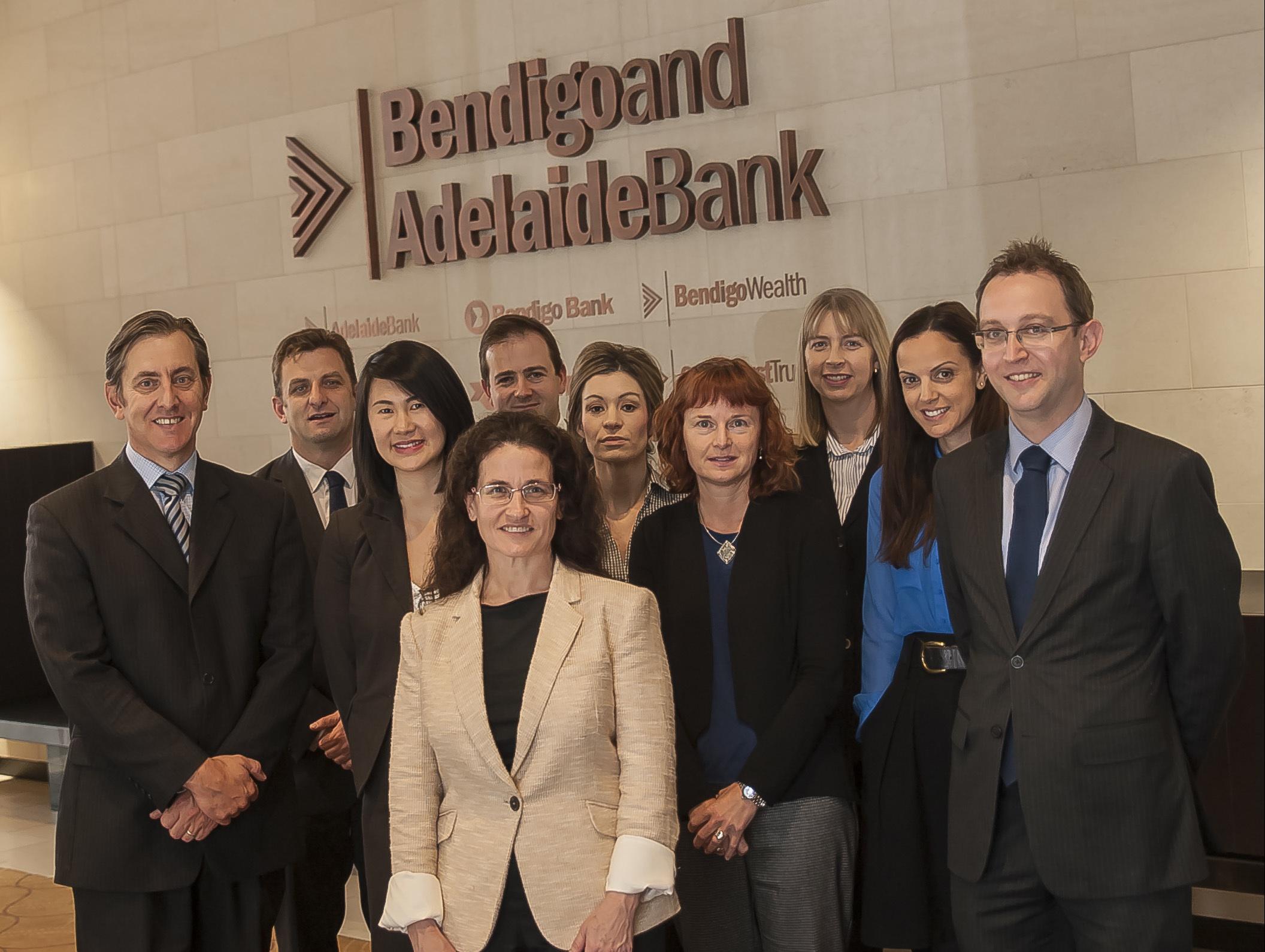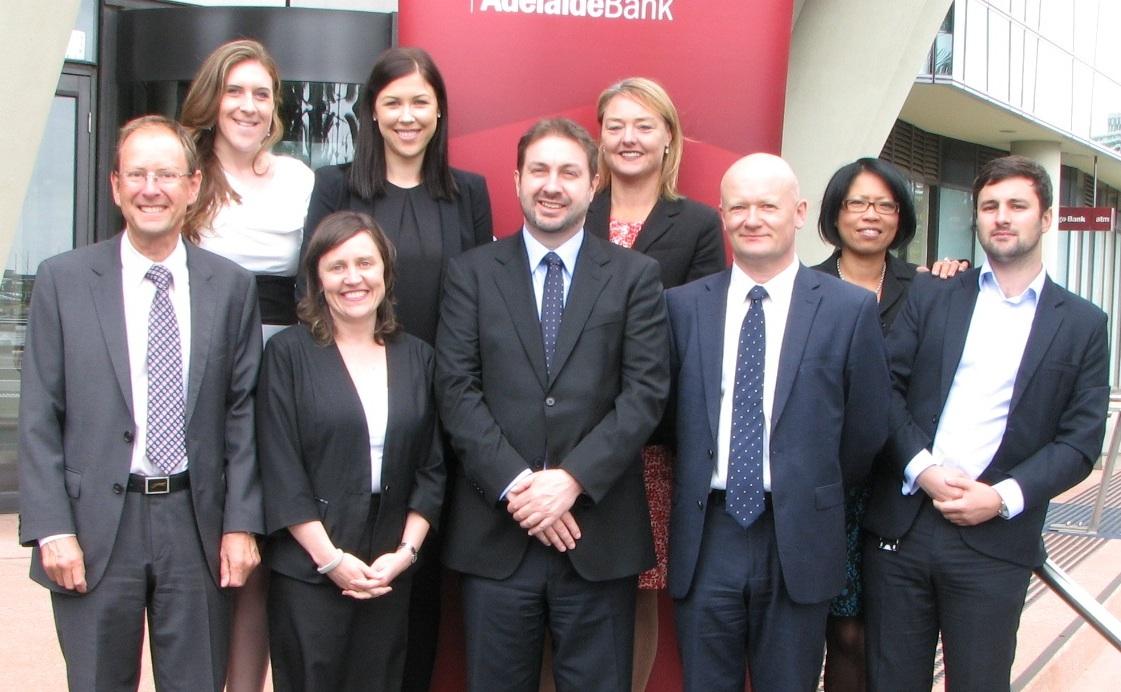Make It So: An Australian Bank Banishes Hourly Fees
By Jennifer J. Salopek
The Waterworks, the name chosen for the portfolio of value initiatives undertaken by Australia’s Bendigo and Adelaide Bank, connotes the position of the in-house legal department at the time. Graphics developed for internal presentations illustrate it poignantly: A tiny lawyer stands astride a faucet representing a deluge of work. The creative approaches comprised in the Waterworks, under the leadership of Maria Polczynski, head of Group Legal, have ensured that her team members manage the workflow and channel the legal focus to the most value-adding work.
Bendigo and Adelaide Bank is a true community bank. Its retail arm, Bendigo Bank, partners with local communities to establish new branches funded by community capital raising activities and owned by the community company so formed. The aim is to yield a sustainable, ongoing revenue stream for community purposes and in fact more than AUD130 million has been returned to local communities in the past 18 years. This earns the bank enormous support from customers and advances its vision to be “Australia’s most customer-connected bank.”
Maria Polczynski, Mark Miller, Anthony Byrnes, Alannah Ho, Ian Sorich, Martha Waterhouse, Juliet Fletcher, Emma Rowland, Patricia Pirone, Nick Clark. Not pictured: Rachel Parisi
“’Feeding into prosperity, not off it’ is part of the bank’s DNA. Part of that is being very cost-conscious with shareholder and customer money. No one flies in the front of the plane,” Polczynski says. Legal technology is limited to Outlook-based systems or those that can be adapted from other systems already available within the bank. Unable to invest in new whiz-bang technology solutions, creativity clearly was needed to deal with the deluge of legal work, the shrinking legal budget and flat headcount in the legal department, which numbers 13.4 attorneys and 1.4 FTE equivalent administrative staff—not many for an institution with more than 600 branches Australia wide and a market cap of AUD5.8 billion.
Insourcing includes the use of the legal team, but also specialized use of other bank staff for appropriate paralegal work. For example, credit staff who review loan packets on acquisitions now simultaneously check basic paralegal items against a checklist and identify deviations for lawyer review. Polczynski educated her team on change management, as well as appropriate occasions and ways to say “no,” to low value work, as they created self-service tools and conducted internal training sessions to empower appropriate staff to take a commercial approach to low-risk work.
The legal department partners with providers piloting new methods including software-based legal delivery, such as a pay-per-use trade promotion tool that guides non-lawyers planning sweepstakes or giveaways through an interactive questionnaire to produce competition terms and license applications. Led by Mark Miller, head of legal strategy, work is also disaggregated and insourced creatively, such as having the bank lawyers as “solicitors on the court record” to avoid double-handling of routine trial correspondence. For discovery alone, these efforts resulted in cost savings for a single year of AUD500,000—or about a third lower than traditional firm costs.
However, it is in the area of value-based pricing with outside law firms that Bendigo has been most progressive. Polczynski says, “The hourly rate is still alive and well (for now), and firms see anything but hourly rates as alternative—the exception rather than the rule.” She notes that while capped fees are more common and accepted, most options still are time-based.
Vic Team, Peter Goffin, Wilcox, Damian Walsh, Tom Russell, Ryan Miller, Teigan Redwood, Kylie Barrie, Kate Haigh, Siew Boon Lou. Not pictured: Stephanie Russell
After two years of engaging firms only on the basis of fixed, value-based pricing, but seeing variations and scope creep default back to hourly rates, Bendigo took a radical line in 2014 by writing hourly charges out of the terms of engagement for all institutional panel work. The bank’s institutional law firms agreed that, absent pre-agreed fixed prices, after-event discussions on pricing would start from the bank’s honest but subjective assessment of the value delivered, without reference to hours or rates. The resulting collaboration with panel firms has led to better alignment between firm and client objectives. Bendigo has become a prominent and influential champion for change in the Australian legal market: Polczynski goes out on the speaking circuit to promote the methodology with other legal industry participants, with the goal of encouraging uptake towards a tipping point in the pricing of legal services in Australia.
Fixed pricing has greatly enhanced budget predictability. Polczynski has instituted some innovative variations including pricing for “mini matters” and “mini retainers.” For litigation work, introducing a rolling retainer with quarterly setting of the prospective monthly fee against required deliverables resulted in costs that were reduced and smoothed, and rolling forecasts that were more accurate.
Through conversations with local colleagues, Polczynski has gathered anecdotal evidence indicating that disaggregation with insourcing, risk-weighted scoping, and value pricing in mergers and acquisitions is delivering savings in external spend in the order of 40 to 50 percent as compared to traditional models for similar transactions. Significantly, this insourcing has been done with flat internal headcount over five years, over which time external spend on business-as-usual legal work has also been substantially reduced—as much as 50 percent.

